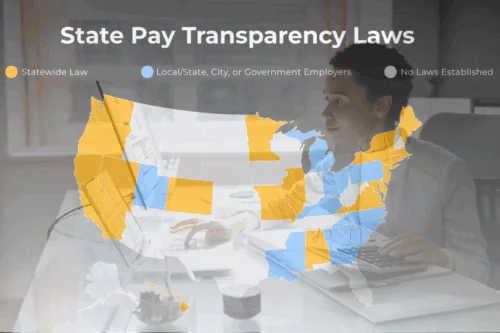Welcome to the ultimate guide on California employment law overtime! Whether you are entering the workforce or seeking to better understand your rights and responsibilities, this guide is crafted just for you. *Note: None of the following should be used/considered as legal advice.
Why This Matters
California’s overtime laws are designed to protect workers by ensuring they are fairly compensated for extended hours. With strict regulations, employees and employers must stay informed about how these laws operate. This guide simplifies complex legal jargon into easy-to-understand information that empowers you in the workplace.
Ready to dive deep into the essentials and boost your professional knowledge? Let’s go!
Understanding California Employment Law Overtime
California’s overtime regulations are some of the most stringent in the United States. Understanding these rules is crucial for employees and employers in this area of legal, government, and economic news.
Basic Overtime Guidelines
In California, overtime pay requires once an employee works more than eight hours in a single day, more than 40 hours in a week, or for the first eight hours worked on the seventh consecutive day of work in a week. Additionally, double time is paid for hours worked over 12 in one day or beyond eight on the seventh consecutive day of work in a week.
Understanding Daily and Weekly Overtime
- Daily Overtime: Employees earn 1.5 times their regular rate when they work more than 8 hours up to 12 hours in a single day.
- Weekly Overtime: Employees earn 1.5 times their regular rate for hours worked over 40 a week.
This ensures employees receive fair compensation for lengthy work hours, safeguarding their rights and well-being.
Critical Resources for Understanding Overtime
To grasp a complete understanding of California overtime laws, several resources are invaluable:
- The Division of Labor Standards Enforcement (DLSE) website offers comprehensive details on overtime provisions.
- Educational materials from credible HR and legal resources provide additional insights.
With these resources, employees, and employers can ensure they adhere to state regulations and avoid potential legal issues related to overtime pay.
Eligibility Criteria for Overtime in California
Knowing who is eligible for overtime pay is essential for understanding California employment law overtime. It’s crucial not just for employees wishing to claim what they’re owed but also for employers planning their staffing and payroll.
Who Qualifies for Overtime?
Most hourly workers in California are eligible for overtime if they work more than the standard hours per day or week set by state law. However, there are specific exceptions based on the type of work and the industry:
- Exempt Employees: Salaried employees who earn at least twice the state minimum wage for full-time employment and meet specific criteria regarding their job duties are exempt from overtime.
- Non-exempt Employees: Those not meeting these criteria must be compensated for overtime work.
Special Considerations
Specific sectors and job types have unique rules. For example:
- Agricultural workers have different overtime thresholds.
- Workers in the healthcare sector might have alternate arrangements based on union agreements or specific shifts.
Understanding these nuances is critical for compliance and ensuring all workers are fairly compensated per California’s employment laws. Employers are advised to consult legal resources or a labor attorney to clarify complex cases and verify their compliance to avoid legal disputes.
Calculating Overtime Pay: Basic Guidelines
Once you determine eligibility, the next step is understanding how to calculate overtime pay in line with California employment law overtime.
Basic Calculation Methods
Overtime pay depends on an employee’s regular hourly rate. For overtime hours, this rate is multiplied:
- Time and a half for hours worked beyond 8 in a day and up to 12.
- Double time for hours over 12 in a day or over eight on the seventh consecutive day.
Examples of Overtime Calculation
Here’s how it works if an employee’s hourly rate is $20:
- Time and a half equals $30 per hour.
- Double time equals $40 per hour.
Also, depending on company policy or agreements, rates might increase if employees work on holidays. Understanding these guidelines helps prevent disputes and ensures fair practice across all employment levels. Employees should always check their pay stubs to confirm the payment for their extra working hours.
Common Exemptions from Overtime in California
Several exemptions can impact an individual’s eligibility for overtime pay under California employment law overtime regulations.
Exempt Job Categories
The most typical categories of jobs that may be exempt from overtime include:
- Executive, administrative, and professional employees who meet specific salary and duties criteria.
- It specifically designated salespeople in retail and service establishments.
- Employees in the computer software field who meet specific income thresholds.
Understanding the “White Collar” Exemptions
These exemptions, often referred to as the “white collar” exemptions, require that the employees:
- Earn a salary equivalent to at least twice the state minimum wage for full-time employment.
- Perform high-level tasks that require discretion and independent judgment.
Some special rules apply to artists, doctors, teachers, and outside sales personnel, who can also be exempt from overtime, depending on their job duties and compensation.
To verify the exact conditions for these exemptions, employers and employees should refer directly to the Department of Industrial Relations or consult with legal experts specialized in labor law. Understanding these exemptions will assist in navigating employment arrangements while ensuring compliance with California’s complex labor laws.
Legal Rights and Employer Obligations Under California Overtime Laws
Both employers and employees must understand the legal rights and obligations concerning California employment law: overtime.
Employee Rights
Employees have the right to:
- Receive overtime pay for eligible hours worked.
- Request a wage claim if employers fail to pay rightful overtime.
- Work without retaliation when asserting their rights under the law.
Employer Obligations
Employers must:
- Pay eligible overtime at the correct rates.
- Maintain accurate records of hours worked and wages paid.
- Inform employees about their rights under California’s overtime laws.
Employees can refer to resources such as the California Department of Industrial Relations FAQs on overtime for further information. Employers might benefit from consulting the Wage and Hour Division of the U.S. Department of Labor to ensure full compliance. Mixing these resources ensures that both parties are mutually informed and compliant with current laws, avoiding potential legal conflicts.
How to File a Claim for Overtime Pay in California
If you believe you’ve not been paid the correct overtime wages, you can file a claim to rectify this under California employment law: overtime.
Steps to File an Overtime Claim
Here’s what you need to do:
- Gather Documentation: Compile all related documents such as pay stubs, work schedules, and any communication with your employer about your work hours.
- File a Claim: Submit a claim with the California Labor Commissioner’s Office, the Division of Labor Standards Enforcement (DLSE).
Process After Filing a Claim
Once your claim is submitted:
- The DLSE will review your claim and may schedule a hearing between you and your employer.
- If the DLSE rules in your favor, they will order your employer to pay the unpaid overtime.
For detailed instructions and additional help, visit the official DLSE’s FAQ page. Employees should act swiftly, as claims must be filed within three years of the alleged unpaid overtime.
Disputes: Steps to Take if Your Overtime Pay Is Denied
Disputes over overtime pay can be challenging. Here’s how to tackle these issues under California employment law overtime.
Immediate Steps
Take prompt action if you suspect your overtime pay is wrong or denied:
- Communicate Clearly: Discuss the issue with your employer. Sometimes, discrepancies are simply due to clerical errors.
- Document Everything: Keep records of all communication and evidence related to your work hours and pay.
Seeking Further Assistance
If the issue isn’t resolved internally, consider the following:
- Contact the DLSE: If initial discussions don’t resolve the issue, you might need to file a formal complaint.
- Legal Advice: Consult a labor attorney specializing in employment law to understand your rights and options.
For additional resources or to understand other employee rights, visit the Wage and Hour Division.
Preventive Measures for Employers to Ensure Compliance
Employers can take several key actions to comply with California employment law overtime regulations and avoid potential disputes.
Best Practices for Overtime Management
Adhering to best practices helps safeguard against violations:
- Clear Policies: Establish clear overtime policies and communicate them to all employees.
- Training: Train managerial staff on overtime regulations to ensure proper implementation.
- Audit Systems: Regularly review payroll practices and record-keeping to catch any discrepancies early.
Utilizing Resources
Utilize legal and HR resources effectively:
- Legal Consultation: Work with employment law experts to stay updated on the latest regulations.
- Technology: Invest in time-tracking software to accurately monitor hours worked.
FAQs: Answers to Common Questions About California Overtime Law
Who is eligible for overtime in California?
Most non-exempt workers in California are eligible for overtime if they work more than eight hours a day or 40 hours a week.
How is overtime calculated?
Overtime is generally paid at 1.5 times the regular pay rate for all hours worked beyond the standard eight hours a day up to 12 hours and for the first eight hours on the seventh consecutive day. Double time applies after that.
Are salaried employees entitled to overtime?
Whether salaried employees are entitled to overtime depends on their job duties, salary, and how their role fits within California’s exemptions as outlined under the white-collar exemption rules.
What should I do if I’m not paid for overtime?
If you’re not paid for the overtime you’re owed, you can file a wage claim with the California Labor Commissioner’s Office or seek legal advice to understand your options.
Can an employer retaliate against me for claiming overtime?
Under California law, employers may not retaliate against employees who assert their rights to receive overtime pay. Employees who experience retaliation may file a retaliation complaint.
How long do I have to file an overtime claim in California?
You have up to three years from when the unpaid wages were earned to file an overtime claim.
Conclusion
Understanding California employment law over time is crucial for employers and employees to ensure fair compensation and compliance. By familiarizing themselves with the rules, eligibility criteria, and steps for addressing disputes, individuals and companies can foster a more transparent and harmonious work environment.
Take Action Now
If you’re navigating the complexities of employment laws or looking for diverse and inclusive job opportunities, consider joining Diversity Employment. Our community offers access to resources, job listings, and support networks dedicated to promoting diversity in the workplace. Equip yourself with the knowledge and tools to succeed in your career or business.
Don’t wait. Join Diversity Employment and upload your resume, or post a new opening on our diversity job board today! Take a proactive step toward understanding your rights and obligations under California overtime laws. Together, we can make workplaces fairer and more inclusive for everyone!




